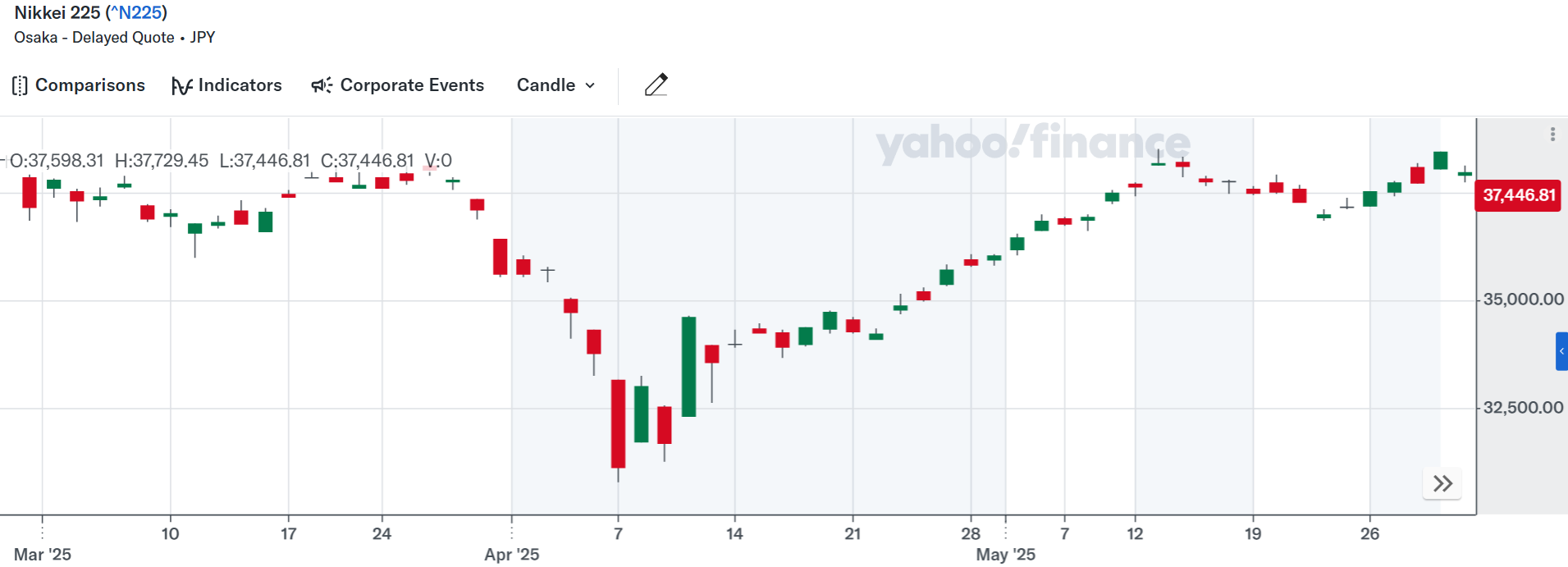
Source: Yahoo Finance
Trade War 2.0
Trump's social media posts have once again shaken the markets. After tariff increases and a brief “truce” in mid-May, the trade conflict between the US and China may reignite again. The White House did not specify exactly what China had violated, but the uncertainty was enough to prompt investors to sit up and take notice again.
This caused an immediate reaction in the markets as US indices plummeted, followed by stock exchanges in Asia. Markets in South Korea, Taiwan, and Hong Kong, traditionally seen as barometers of tension in US-China relations, reacted particularly sensitively.
However, Nikkei is on Track to Rise.
The Japanese Nikkei 225 index offers an interesting contrast, appearing more stable despite global uncertainty. According to a Reuters survey of analysts, it could rise by about 5% to 39,600 points by the end of the year. Some experts even expect it to break its historic high by the middle of next year.*
According to them, the market could soon return to fundamental factors such as a weak yen, low interest rates, and strong profits for Japanese companies. The weak currency helps exporters, of which there are more than enough in the Tokyo index.
Volatility has not yet had its final say.
Although Nikkei is showing stability, recent months have shown that nothing is certain. From its record highs in 2024, the index first fell by 27%, then rose only to fall again after Trump's tariff attacks.* Some analysts, therefore, warn that nervousness about global trade will keep markets on edge for a long time to come.
While half of the experts expect corporate results to improve, the other half anticipate a slight decline. Uncertainty surrounding trade policy is forcing even large analytical houses such as Nomura to change their forecasts from day to day.
The Market is Looking for Direction.
The trade war between the US and China is once again setting the tone, and until there is a clear signal of reconciliation, markets will overreact to every new statement. Japan is currently being kept afloat by domestic factors, but the rest of Asia remains vulnerable. Investors, therefore, remain on alert, and with them, the markets.
Without new sources of tension like Trump’s foreign policies, the global markets tend to rise. But as soon as a new comment or threat is introduced, all major indices fall. This highlights the long-term presence of high volatility.
* Past performance is no guarantee of future results.




